|

Dear BioQUEST Community,
We hope the flowers are starting to bloom and the temperatures mild wherever you are. My ducks and geese are very excited that their pond is open again for swimming!
It has been a crazy and exciting semester with so many projects and possibilities on the horizon. What keeps me grounded in all of it is this community–knowing there are so many of us who care deeply about STEM education and have the most innovative ways of thinking about the challenges we face. I hope that we will see many of you this summer at this year’s BIOME; frankly, I can’t wait to be inspired - by our keynotes, our discussions, our work moving forward, and by you.
I also want to call attention to a new section of our newsletter: "BioQUEST Near You” will let you know what conferences and events BioQUEST staff and volunteers will be attending. As in-person events slowly return, we’d love to catch up with you in the old-fashioned face-to-face way, when it's safe to do so. We’ll also include virtual events and would love to connect online, too.
Here’s to spring, and seeing you soon,
Sarah
Sarah Prescott, PhD
Executive Director, BioQUEST
Associate Professor, University of New Hampshire
P.S.
If you’re coming across this newsletter on the QUBES website, you can subscribe here to keep in touch!
In this newsletter:
BioQUEST News
Partner Corner
 Featured Partner Featured Partner
|
News and Opportunities
Other Opportunities
QUBES Corner
BioQUEST News
BIOME 2022 Early Bird Deadline is April 17
We wanted to give people a little more time to take advantage of our early bird rates, so we’ve extended the deadline to Sunday, April 17!! Learn more below and join us!!
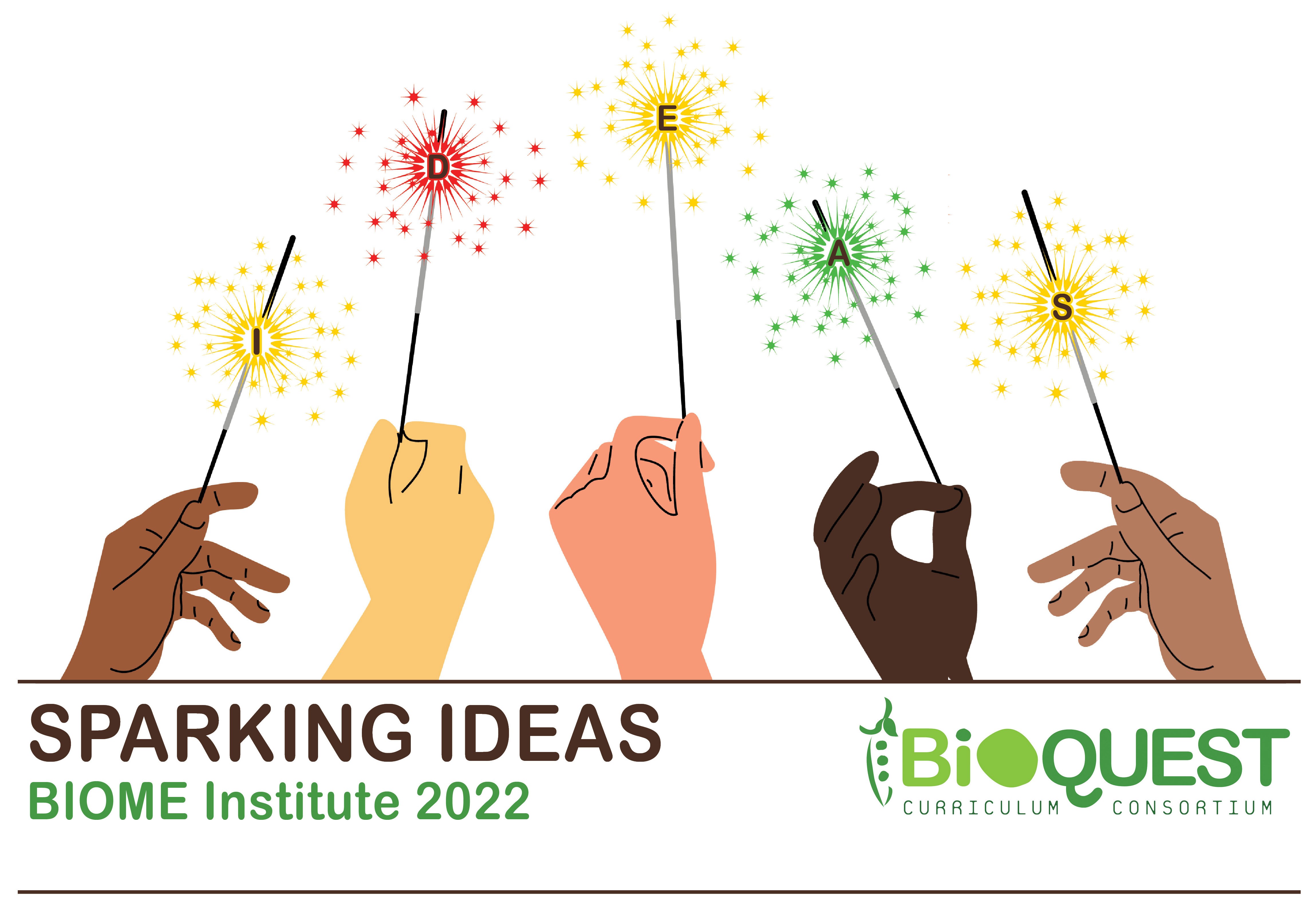
Sparking IDEAS: Inclusive, Diverse, Equitable, and Accessible Communities in STEM Classrooms
July 18 - 29, 2022
July 18-22 will be our workshop intensive week, with synchronous sessions, while the following week will provide time to connect asynchronously and form fall working groups.
Application and deadlines:
Early bird deadline is April 17
Final deadline is May 10
Keynotes:
Ruthmae Sears, Associate Professor at University of South Florida
Mica Estrada, Associate Professor at University of California, San Francisco
More on our theme:
Creating equitable, inclusive learning environments for all of our students is paramount for empowering them as thinkers, scientists, and citizens, and for advancing scientific discovery and innovation. How do we foster a sense of belonging in each student and a sense of community for the class as a whole? How do we reduce barriers to participation and engage all perspectives? How do we position ourselves as leaders but also empower students to guide their own learning? In turn, what strategies for fostering inclusion and equity carry from the classroom into our professional networks?
The BioQUEST community, through the 2022 BIOME Institute, will aim to support faculty in building a sense of community and belonging within their classrooms and groups with the goal of creating networks and partnerships founded on mutual trust, respect, and open collaboration between students and educational leaders. BioQUEST has been a leader in STEM education reform for the past 35 years, and this year we will continue to grow our community through conversations focused on shifting the relationship between instructors and students, reframing instructional practice, and improving all student outcomes and feelings of belonging in STEM.
Stay tuned to this newsletter for updates on our keynotes, workshop offerings, and more!
BioQUEST Community Conversation, Apr 28: Test Kumospace with us!
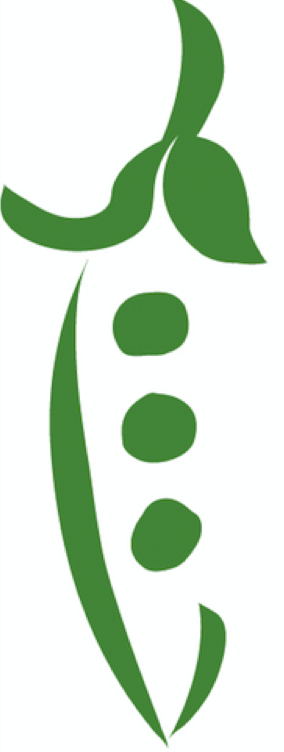
Kumospace is a virtual event space that allows for a more social environment than your standard Zoom room. We are thinking of using Kumospace for some of our social hours at the BIOME Institute summer session. Come test it out with us! It could be a trial for your own event or just to have fun with your favorite BioQUEST staff members. We will also be available to answer any questions you might have about the BIOME.
Register for the session here.
Visit our Office Hours and Community Conversations page for recorded sessions.
Featured Publications
We are so proud of the amazing scholarly work that is coming out of our community. Congratulations to the authors and thank you for your work.
If you have published a paper related to your work with BioQUEST and/or the QUBES platform, please let us know (send the link to Caitlin)!
BioQUEST Near You
We’d love to connect with you in-person or online at these upcoming conferences and meetings! We’ve also created a forum where you can let us know where you will be (join the BioQUEST group first, if you haven’t already!).
Partner News and Opportunities
Featured Partner: BCEENET

The Biological Collections Ecology and Evolution Network (BCEENET)
BCEENET brings together natural history collections professionals, undergraduate educators, data experts, and researchers to support the development and implementation of Course-based Undergraduate Research Experiences (CUREs) using digitized collections data. We provide training, curriculum materials, and ongoing support for faculty members who are implementing CUREs. BCEENET CUREs use freely available data, open source software, and can be implemented in a wide variety of course structures.
How can you get involved?
If you are interested in learning more about our organization or the CUREs, please join the group, follow us on Twitter @bceenet, subscribe to our mailing list or contact us at bceenetwork[at]gmail[dot]com.
A note from the PIs:
We are curating our materials and will be sharing more to QUBES soon. If you're interested in implementing now, email us for early access.
HHMI Biointeractive offers workshops related to data-centric pedagogy

Scientific Figures: Pairing Data Points with Other BioInteractive Resources
Monday, May 2, 4:30–6:00 PM ET
Thursday, May 19, 4:30–6:00 PM ET
Barriers to Student Engagement with Data
Tuesday, May 17, 4:00–5:30 PM ET
Wednesday, June 8, 7:00–8:30 PM ET
Apply for the 2022 CourseSource Writing Studio

CourseSource is hosting a Writing Studio workshop starting late afternoon on Tuesday, July 5th and ending at 2 pm Thursday, July 7th in Minneapolis, MN, just ahead of the Society for the Advancement of Biology Education Research (SABER) meeting.
They are looking for faculty, graduate students, and postdocs who are interested in attending and getting advice for preparing their manuscripts for publication in CourseSource.
If you are selected for the Writing Studio, CourseSource will provide $2000 travel support after the conclusion of the Writing Studio that can be used for travel, lodging, and food. If you wish, you can also stay for the SABER meeting.
Learn more about this fantastic opportunity!
CourseSource seeks physics and astronomy teaching resources
We are excited to announce a new opportunity to share research-supported teaching resources for undergraduate physics and astronomy in a peer-reviewed journal. CourseSource Physics is a parallel publication along with the current CourseSource Biology journal, leveraging the online publishing platform that is already in place. Our current funding model allows us to make articles available online free of charge to both users and authors. CourseSource Physics supports developers by providing a venue to share resources with a broad audience. And because it is a peer-reviewed journal, publications in CourseSource can be listed on a CV for professional acknowledgement.
This journal sits among other similar journals like the American Journal of Physics and the Physics Teacher. CourseSource is different in several ways. We focus on publishing ready-to-use and field-tested teaching resources (searchable by numerous metadata, such as topic, audience, and course level) that practitioners can download and use directly along with guidance to support implementation. Additionally, many of the lesson articles published include direct evidence of effectiveness. Our articles detail the authors’ approach taken to teaching a lesson and how it helped meet the learning goals of the class. While some details about the outcomes or effectiveness of the lesson is required, the focus is primarily on the nuances of implementing the materials. We provide mechanisms for you to a) describe your approach, b) publish your materials, and c) collaborate with others who might be interested in your approach but for a different context (different in class size, type of students, teaching modality, etc.).
We hope you will consider contributing. Please check out our website for additional information.
We are also seeking reviewers and would greatly appreciate your expertise. You can register as a reviewer here.
Please email us if you have any questions!
RIOS announces four new working groups
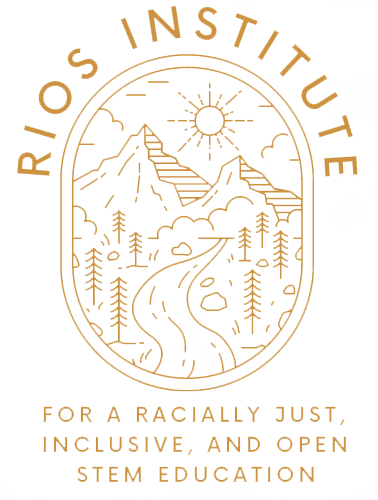 RIOS is thrilled to share this round of funded Working Groups! The new projects are: RIOS is thrilled to share this round of funded Working Groups! The new projects are:
-
Broadening Representation and Recognition in STEM curricula with OERs (proposed by Dr. Marja Bakermans)
-
The Inner Landscape of Critical Thinking: Building Learning Ecosystems for STEM Students’ Wicked Competencies (proposed by Dr. Mays Imad)
-
A Culturally Responsive Instructor Training Curriculum (proposed by Elizabeth Besozzi)
-
Academic Senate for California Community Colleges (ASCCC) OER Initiative: The IDEA Framework (proposed by Dr. Michelle Pilati)
To learn more about each group's focus, read the latest on the RIOS News blog!
In addition, Dr. Pilati is currently looking for additional participants for their Working Group; if you are interested, please reach out to them at mpilati[at]asccc[dot]org!
To keep up to date with findings from this year’s Working Groups, as well as future opportunities, be sure to join RIOS and follow them on Twitter!
RIOS recruits for Academic Senate for CA Community Colleges working group
Academic Senate for California Community Colleges (ASCCC) is recruiting faculty for their new Working Group, funded by RIOS. Participants will join short-term project to improve the ASCCC OERI’s IDEA Framework! This framework provides tools for faculty to choose and improve existing OER for their courses.
Participants must be faculty (part-time or full-time) in a STEM field at a college or university. Faculty who teach a STEM-oriented course or courses within a non-STEM discipline will also be considered (e.g., physical anthropology). The project will take place during May, June, and July. Participants will receive an honorarium of $1,000 for their work.
To learn more about this Working Group and apply, visit ASCC OERI's site.
Deadline to apply is 5pm April 25th, 2022.
OCELOTS Offers Summer Faculty Mentoring Network
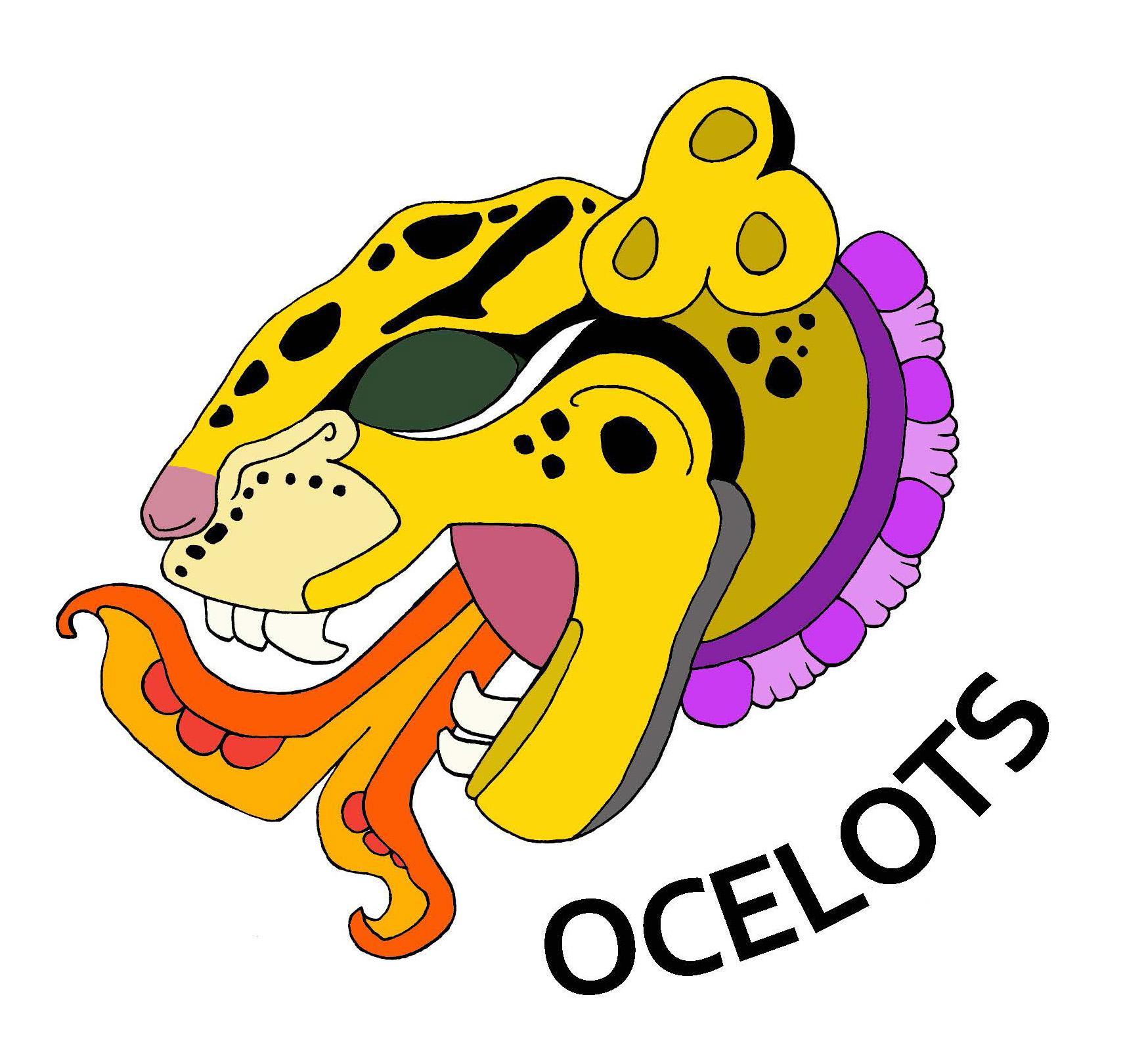
OCELOTS Summer 2022 FMN
Adapting an existing module
Applications Due: April 15, 2022 Apply now!
Are you interested in adapting an online, open-source module in tropical ecology that is based on authentic research? Apply now to join us for the Summer 2022 OCELOTS & BioQUEST/QUBES Faculty Mentoring Network (FMN).
Participants in this FMN will focus on adapting a specific module in tropical ecology for use in undergraduate life science courses. Accepted applicants will customize an existing OCELOTS module hosted on the Gala platform. While doing this, they will participate in weekly virtual sessions to collaborate with and support others in the network and receive mentoring.
For more information, visit our FMN page.
Antibody Engineers Announces dates for second annual Hackathon
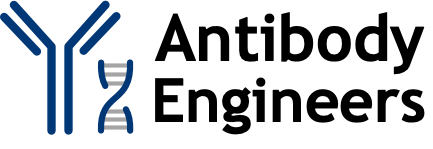
The second virtual Antibody Engineering Hackathon will take place August 8-11th. Applications will open in May! Check out this group and join!
Other Opportunities
TUnE-Bio seeks input on assessment in introductory biology courses
Please see the calls for participation (for faculty and students) from Sharon Homer-Drummond below.
CALL FOR FACULTY PARTICIPATION:
Dear fellow biology faculty,
I am a contributing participant in an NSF-funded Research Coordination Network in Undergraduate Biology Education (RCN-UBE) called Transforming Assessment, Feedback, and Grading in Undergraduate Biology Education (TUnE-Bio). The first step of this research program is to get a birds-eye view of current assessment, feedback, and grading practices in introductory biology lecture sections in the U.S.
As such, I invite you to complete an approximately 10 minute survey aimed at better understanding current grading and assessment practices in introductory biology courses.
Please see the advertisement below for more information:
Researchers at Simmons University are looking for teachers of introductory undergraduate biology classes for a study on how you measure student learning and grading. For this survey, we welcome introductory biology instructors from 2 and 4 year institutions. If you participate, you will be asked to complete a survey. This survey will ask questions about your background and your teaching practices. The survey takes approximately 10-15 minutes to complete. Four randomly chosen people who respond to the survey will receive a $200 Amazon gift card.
If you are interested, you can find the survey here.
If you have questions, feel free to contact the study co-PI: Dr. Sarah Cavanagh.
CALL FOR STUDENT PARTICIPATION:
Students: Want to earn a $30 Amazon gift card by participating in a 30-45 zoom interview with a few other students?
Researchers at Simmons University are looking for current college students (including 2-year schools) who have taken at least one introductory biology course in the United States for an interview about your learning! You will be asked to complete a brief survey that will help us select students from different backgrounds. Some people who complete the survey will be invited to a 30-45 minute Zoom interview. This interview will take place with 1-4 other students from your school or others. In this group interview, you will answer questions about your experience in biology classes. These questions will be about how your learning was measured and how you were graded. All interviewees will receive a $30 Amazon gift card. You must be 18 years old to participate.
If you are interested, here is the prescreening link.
If you have questions, feel free to contact: Dr. Sarah Cavanagh.
Help a student! Student calls for CRISPR/Cas9 survey participants
An Illinois high school is looking for participants for her survey: "Effects of Off-Target Mutations on the Usage of CRISPR/Cas9"
The student is a mentee of one of our community members, Keith Johnson. You can provide input here.
George Mason to hire director of STEM Accelerator Program
There is an opening for the director of the STEM Accelerator program in the College of Science at George Mason University (in the Virginia suburbs of DC). The STEM Accelerator works to increase the number of STEM majors, improve retention rates of STEM students, and help STEM graduates join the workforce or continue their education. Their programs include the Learning Assistant program, the STEM Bridge Camp for incoming undergrads, the FOCUS camps for middle-school and high-school girls, and much more.
The full job listing can be found here.
|